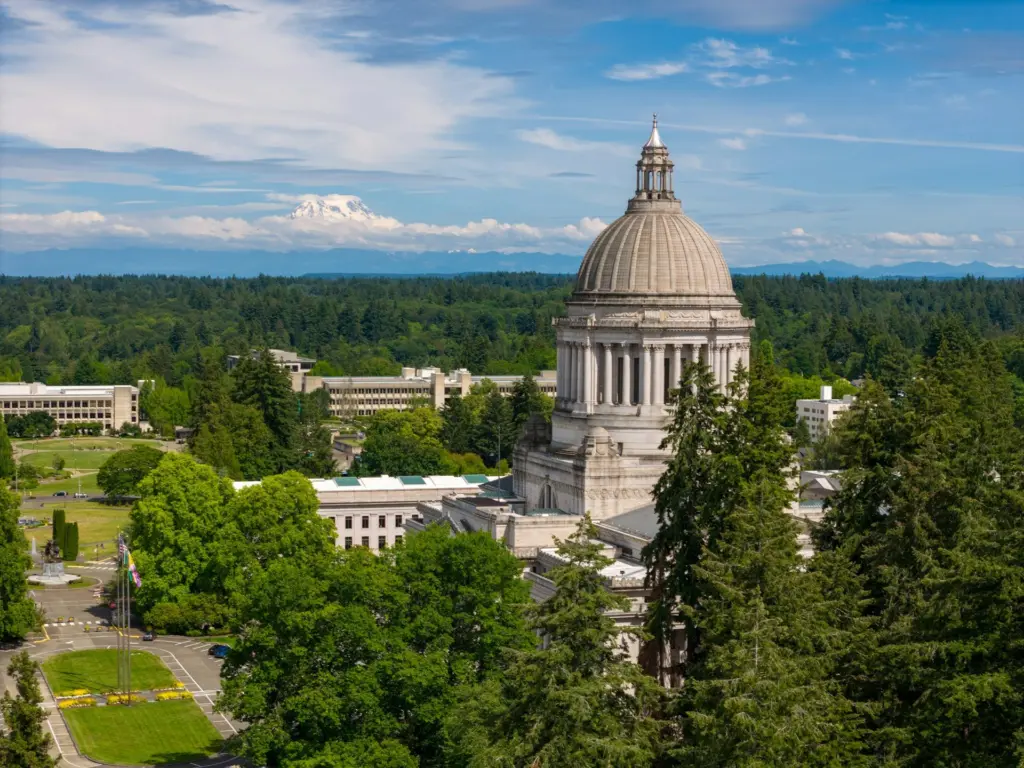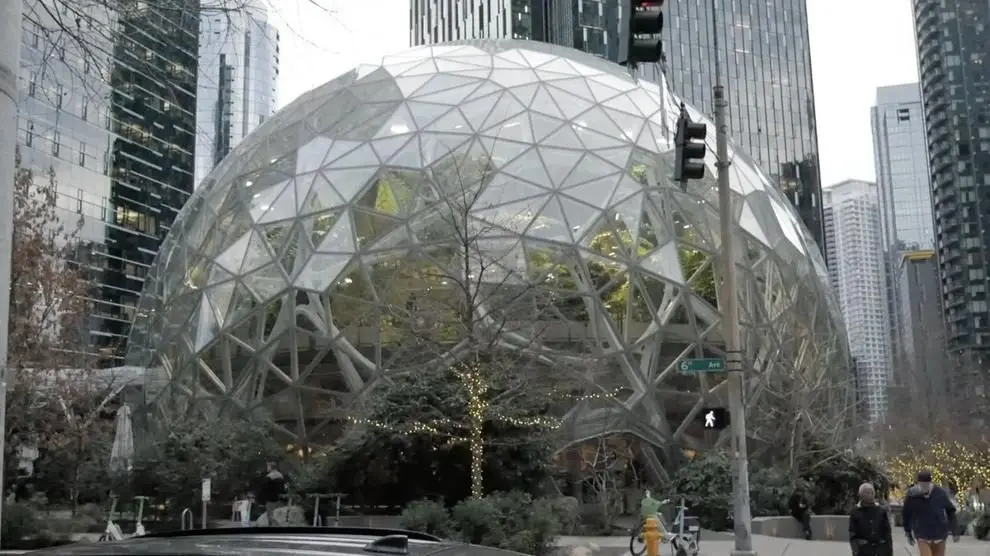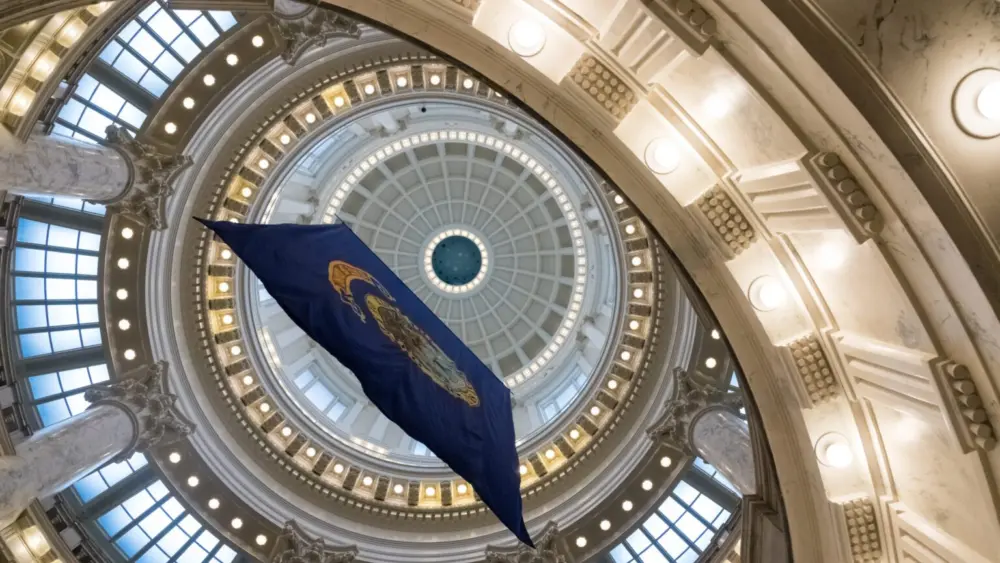OLYMPIA, WA – Democratic state senators are eyeing an income tax on millionaires as they seek to overcome Washington’s persisting budget shortfall.
Individuals and households would pay a 9.9% tax on adjusted gross income above $1 million, and get credit for state capital gains tax payments, according to those familiar with the broad outline. It could generate an estimated $3 billion from a projected 20,000 households subject to the tax.
The Senate Democratic Caucus discussed the politically explosive idea, which has been repeatedly rejected by voters and the state Supreme Court, during a retreat earlier this month. They also talked about other means of raising revenues to avert deficits in the current and next budget.
Senate Majority Leader Jamie Pedersen, D-Seattle, said Wednesday it’s too early to know if the income tax concept solidifies into legislation in the 2026 session that begins Jan. 12.
“We’ve got a lot of things being discussed and researched. I am aware of at least four or five different ideas being evaluated in various ways,” he said. “It is not the case that anybody has settled on any ideas to the point that anyone is going to introduce something.”
An income tax would not be a short-term solution to the state’s budget difficulties because it is certain to be challenged in court or on the ballot. But supporters view it as a stable revenue source for the future, and a long-sought step toward rebalancing the tax code.
Washington is among nine states nationwide that do not tax individual wage and salary income.
There would be hurdles to getting the tax passed. It would need to get through the Legislature in an election year in which all House seats and a majority of Senate seats are on the ballot. Democrats currently hold majorities of 59-39 in the House and 30-19 in the Senate.
Then Democratic Gov. Bob Ferguson, who is not up for election, would need to be won over or at least not veto it. That’s not a sure thing after he turned down a so-called wealth tax pushed last session by Democrat lawmakers.
Ferguson said Wednesday he is “aware” of the income tax conversation but did not have a position and that, in general, he is wary of tax increases in the coming session.
“We did raise billions of dollars in revenue earlier this year and I’m skeptical of additional revenue at this time,” he said.
Sen. Chris Gildon, R-Puyallup, the lead Republican budget writer, is aware too.
“It just seems the thirst for new and additional taxes from the progressives in the Washington state Legislature is never-ending,” he said. “Because they haven’t paid any price for raising taxes earlier this year. I think they are very emboldened right now.”
‘What are other things we can consider?’
Revenue streams feeding the Washington state budget are not keeping pace with the increasing cost of public services and government operations. The most recent forecast projected tax collections are more than half a billion dollars less than lawmakers counted on when they approved the budget in April.
There’s talk of needing to fill a billion-dollar gap in the current two-year budget, and an even larger one in the next.
This souring situation comes after the 2025 session in which the governor and Democratic majorities in the House and Senate plugged a $12 billion chasm with billions of dollars from new taxes and higher fees, coupled with across-the-board spending cuts.
Washington is often identified as having one of the nation’s most regressive tax codes, meaning lower earners pay a disproportionately high share of their earnings. Many progressives see an income tax as a fix, but the Washington Supreme Court has ruled that the tax is not allowed under a provision in the state Constitution.
Pedersen’s 43rd Legislative District is one of the state’s most progressive. He said Washington must find ways to spread the tax burden “more fairly” over all income brackets.
On the final day of this year’s session, Senate Democrats passed a controversial bill to impose a tax on those with more than $50 million of certain financial assets, such as stocks, bonds, and mutual funds. The bill did not come up for a vote in the House.
The legislation is still alive and, theoretically, could be voted on by the Senate early next session.
“If the wealth tax is not the answer. What are other things we can consider?” Pedersen said.
Rep. Shaun Scott, D-Seattle, who serves the same district as the senator, said he “absolutely” supports the idea of an income tax on higher earners.
“It’s very in line with what I am hearing from people in my district and around the state,” Scott said. “It’s not simply taxing the rich. Funding services are more popular and a plurality will oppose measures to cut revenue.”
The chair of the House Finance Committee, Rep. April Berg, D-Mill Creek, said she’s working on legislation to clear up concerns with new taxes and is unfamiliar with details of the income tax idea.
“Everything is always open for discussion,” she said. “I am not aware of any similar proposal in the House.”
‘Interesting question’
Microsoft president Brad Smith smiled when asked his opinion about the potential tax during an interview on Tuesday.
“I think it’s an interesting question,” he said.
Smith and leaders of many of the state’s largest companies actively opposed this year’s new business taxes. He said any kind of tax discussion in 2026 must be more collaborative than this year because what occurred in the last session “really divided the progressive community politically from the business community economically.”
“Certain taxes are in desperate need of reduction,” he said, citing property taxes and business taxes paid by small and family-owned enterprises. “But if we’re going to reduce some taxes, then that usually means that you’ve got to look for revenue in other places.”
Max Martin, director of government affairs for the Association of Washington Business, said he’s heard the tax discussed and would like more details.
“My head is still spinning from last session. Businesses are still trying to wrap their heads around that,” said Martin, whose focus is tax and fiscal policy. “It kind of feels like Groundhog Day.”
Washington State Standard is part of States Newsroom, a nonprofit news network supported by grants and a coalition of donors as a 501c(3) public charity. Washington State Standard maintains editorial independence. Contact Editor Bill Lucia for questions: info@washingtonstatestandard.com.





